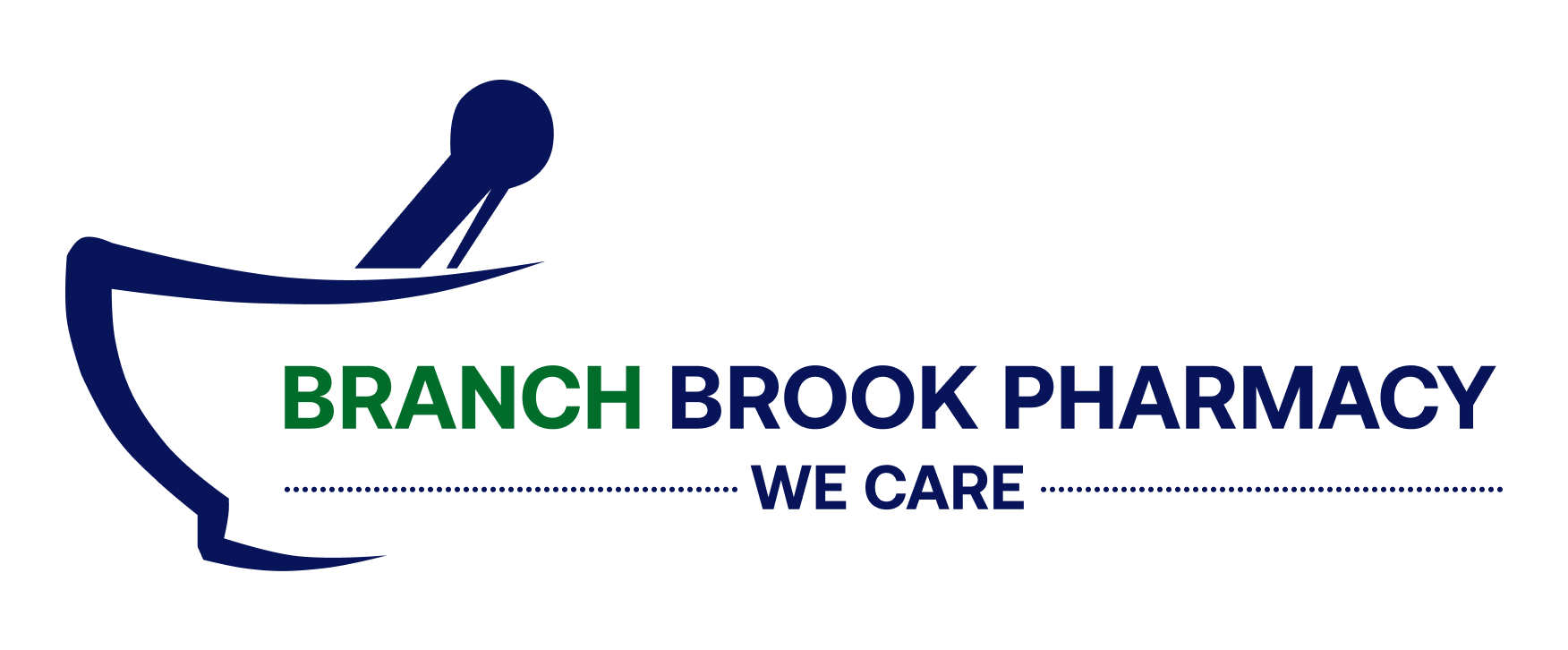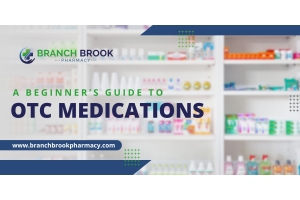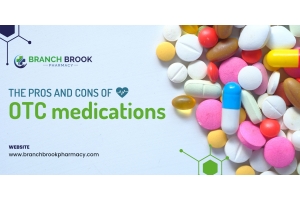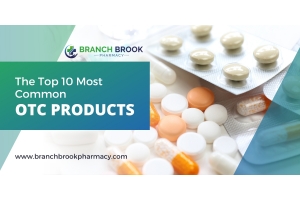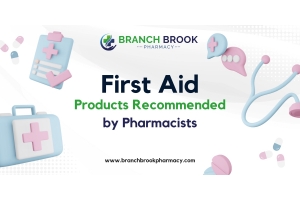Empowering Your Wellness Journey: How a Local Pharmacy Can Make a Difference
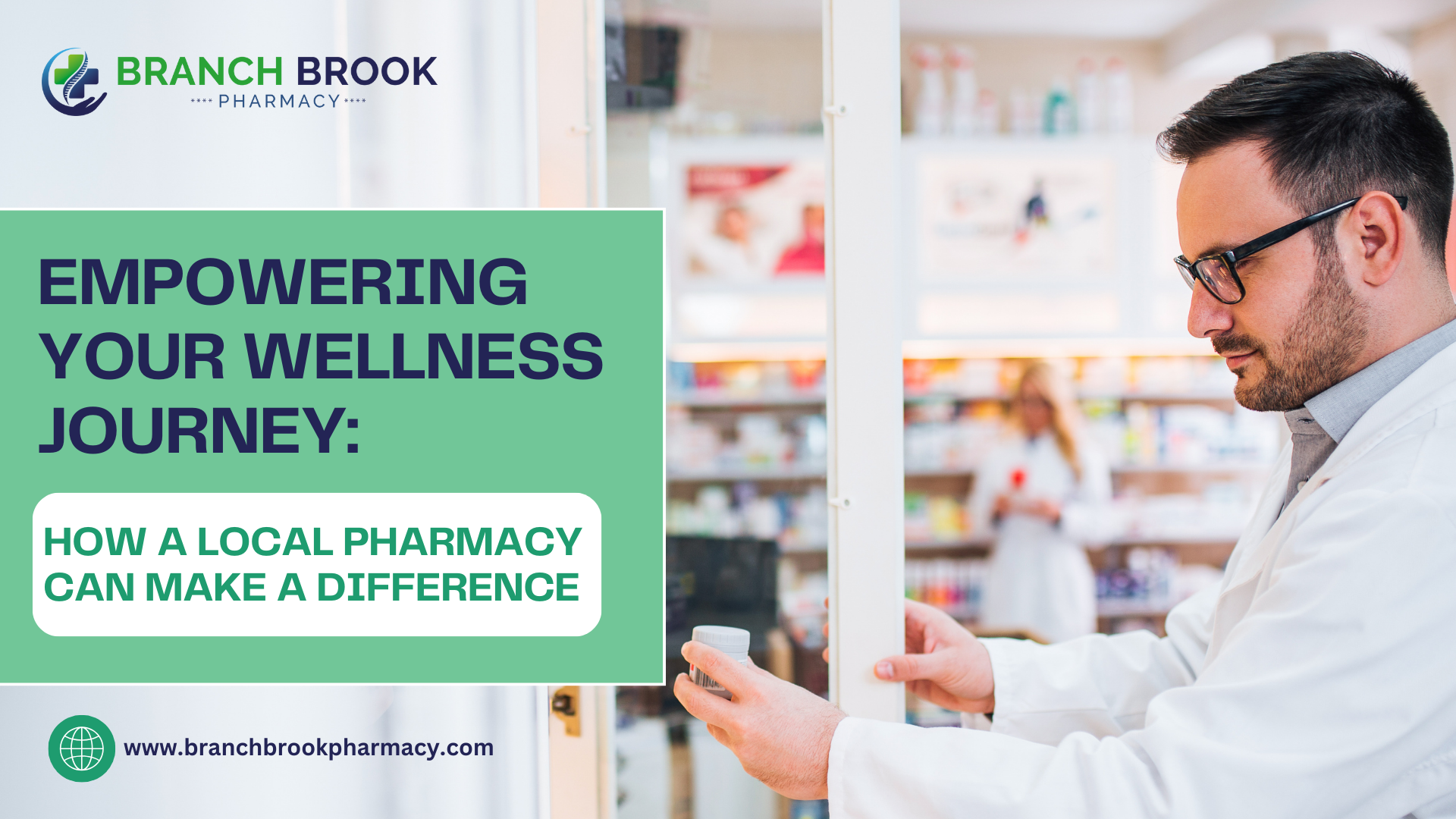
In today's bustling world of healthcare, the role of the local pharmacy often goes underappreciated. However, these community hubs play a pivotal role in empowering individuals on their wellness journeys. Far beyond just dispensing medication, local pharmacies are invaluable sources of support, information, and holistic health guidance. In this article, we'll explore how your neighborhood pharmacy can make a significant difference in your quest for wellness.
Wellness is an increasingly popular term across various sectors, driven in part by the escalating complexities and expenses associated with the healthcare industry. It's a stark truth that maintaining one's health and proactively investing in personal wellness not only eases the mental and financial burden but also stands as a more economical choice compared to treating health issues.
However, there are several prevailing factors that contribute to an unhealthy population and perpetuate the allure of quick-fix solutions. Consider the statistics: Over 70% of American adults are either overweight or obese, contributing significantly to the nation's healthcare expenses. Obesity-related healthcare costs alone exceed $147 billion annually in the United States.
Smoking remains another critical challenge to public health. Despite a decrease in smoking rates over the years, it is still responsible for approximately 480,000 deaths annually in the US. The economic impact is staggering, with smoking-related healthcare costs exceeding $300 billion each year.
In recent years, the rise of lifestyle-related chronic diseases, such as type 2 diabetes, has put an additional strain on the healthcare system. Currently, over 34 million Americans have diabetes, with associated medical expenses totaling over $327 billion annually.
While there is a growing awareness of the importance of a holistic approach to health and wellness, the quick-fix market continues to flourish. Trends in fad diets and unproven supplements persist, contributing to the cycle of temporary solutions and chronic health problems.
The question that looms is this: In an era of quick fixes and shortcuts, where did the emphasis on sustainable lifestyle changes go? The answer is complex, influenced by various factors, including socioeconomic disparities in access to healthy options, lack of health education, and the pervasive culture of seeking immediate results.
In light of these statistics, it's evident that a proactive approach to wellness, which includes healthy lifestyle choices and preventive measures, is not only cost-effective but also essential for individual and societal well-being.
A Personalized Approach to Health:
One of the primary benefits of choosing a local pharmacy is the personalized care you receive. Pharmacists are highly trained professionals who can provide tailored guidance on medications, supplements, and lifestyle choices. Unlike large chain pharmacies, local pharmacists often have more time to get to know you and your unique health needs. Whether you have questions about medication interactions, side effects, or alternative treatments, your local pharmacist can offer expert advice, ensuring you make informed decisions about your health.
Here are some key aspects of a personalized approach to health:
- Tailored Healthcare Plans: Personalized health involves creating healthcare plans that are uniquely suited to an individual's needs, taking into account their medical history, genetics, lifestyle, and preferences.
- Precision Medicine: It emphasizes the use of genetic information and advanced diagnostics to customize treatments, medications, and interventions for specific health conditions.
- Holistic Well-being: A personalized approach considers not only physical health but also mental, emotional, and social aspects, recognizing that they all play interconnected roles in overall well-being.
- Lifestyle Modifications: Encourages individuals to make sustainable changes to their diet, exercise routines, sleep patterns, and stress management techniques based on their specific health goals and challenges.
- Prevention and Early Detection: Personalized health places a strong emphasis on preventive measures, such as regular screenings and health assessments, to catch potential health issues early and reduce the risk of disease.
- Patient-Centered Care: Fosters collaborative partnerships between patients and healthcare providers, ensuring that patients actively participate in decisions about their health and care plans.
- Data and Technology Integration: Utilizes health data, wearable devices, and digital health tools to track progress and make real-time adjustments to health plans.
- Nutritional Guidance: Offers individualized dietary recommendations based on factors like allergies, sensitivities, cultural preferences, and nutritional needs.
- Psychological Support: Recognizes the importance of mental health and provides access to counseling, therapy, and stress reduction strategies as part of a personalized wellness plan.
- Ongoing Monitoring: Regularly evaluates progress, adjusts treatment plans, and adapts interventions as an individual's health status evolves.
- Empowerment and Education: Equips individuals with the knowledge and tools needed to actively manage their health and make informed decisions.
Accessibility and Convenience:
Local pharmacies are conveniently located within your community, making it easier to access the medications and healthcare products you need. This proximity ensures that you don't have to travel far when you require prescription refills or have urgent health concerns. Additionally, many local pharmacies offer services like prescription delivery, making it even more convenient for individuals with mobility challenges or busy schedules to access their medications.
Holistic Wellness Support:
Wellness isn't solely about medications; it encompasses a comprehensive approach to health. Local pharmacies often offer a wide range of wellness products, including vitamins, supplements, and over-the-counter remedies. Your local pharmacist can guide you in choosing the right supplements to support your overall well-being, such as those discussed in our previous article on libido enhancement. They can also provide valuable information on proper nutrition, exercise, and stress management techniques, all of which contribute to a holistic wellness plan.
Community Engagement:
Local pharmacies are deeply ingrained in the communities they serve. They frequently engage in community health initiatives, such as flu shot clinics, health screenings, and educational workshops. These efforts not only promote healthier communities but also provide opportunities for individuals to connect and learn more about their health. The sense of belonging and support that local pharmacies offer can be instrumental in your wellness journey.
Advocates for Your Health:
When you choose a local pharmacy, you're not just a customer; you're part of a community. Your pharmacist becomes an advocate for your health, ensuring that you receive the best care possible. They can collaborate with your healthcare provider to address any concerns or questions you may have about your treatment plan. This collaborative approach can lead to better health outcomes and a deeper understanding of your own well-being.
Pharmacists' Evolving Role in the Era of Wellness
In a world where wellness is becoming increasingly prominent, the role of pharmacists is evolving to meet the changing needs and expectations of patients. These healthcare professionals, long considered the custodians of medications, are now stepping into a more comprehensive role in promoting and supporting wellness. Let's explore how pharmacists are adapting to this evolving landscape and why their involvement is crucial in the era of wellness.
1. Medication Management and Holistic Health:
Pharmacists have always been experts in medication management, ensuring that patients take their prescriptions safely and effectively. However, in the era of wellness, their role extends beyond mere pill dispensing. They now actively engage with patients, discussing medication adherence in the context of overall well-being. Pharmacists help patients understand how their medications fit into their holistic health journey, emphasizing the importance of taking medications as prescribed for optimal health outcomes.
2. Medication Reviews and Preventive Care:
Pharmacists are increasingly conducting medication reviews, identifying potential issues, such as drug interactions or adverse effects, and working collaboratively with healthcare providers to make necessary adjustments. This proactive approach not only ensures patient safety but also aligns with the wellness philosophy of preventing health issues before they escalate. By optimizing medication regimens, pharmacists contribute to the prevention of complications and promote overall wellness.
3. Health Education and Promotion:
Pharmacists serve as valuable sources of health information and education. They offer guidance on lifestyle modifications, including diet, exercise, and stress management, which are integral components of wellness. Patients can turn to pharmacists for evidence-based advice on dietary supplements, vitamins, and over-the-counter remedies, enabling them to make informed choices that support their wellness goals.
4. Vaccinations and Preventive Health Services:
Pharmacists have expanded their scope of practice to provide vaccinations and other preventive health services. This includes administering flu shots, vaccines for preventable diseases, and health screenings. By offering these services, pharmacists contribute to disease prevention and encourage proactive healthcare seeking, aligning with the overarching wellness approach.
5. Community Engagement and Wellness Initiatives:
Pharmacists are active participants in their communities, organizing wellness initiatives such as health fairs, educational workshops, and smoking cessation programs. These efforts promote community well-being and encourage individuals to take proactive steps towards a healthier lifestyle.
6. Advocates for Patient-Centered Care:
Pharmacists are becoming strong advocates for patient-centered care, emphasizing collaboration and shared decision-making. They ensure that patients' preferences, values, and goals are considered in healthcare decisions, fostering a sense of ownership over one's health—a fundamental aspect of the wellness paradigm.
Pharmacists are not only ready to grow with the expanding wellness movement but are essential drivers of it. Their evolving roles encompass medication management, health education, preventive care, and community engagement. As patients increasingly seek a holistic approach to well-being, pharmacists are well-positioned to guide and support them on their wellness journeys, making a profound difference in their overall health and quality of life.
leading the way towards a wellness-focused future
In an era where wellness has taken center stage, it's a question that resonates deeply: Who will take the helm and lead the charge for wellness? As the pursuit of well-being becomes increasingly vital in our lives, the responsibility of guiding this transformative journey falls upon a diverse range of individuals, organizations, and communities.
| Leaders in the Charge for Wellness | Role and Impact |
| Healthcare Professionals | Provide education, prevention, and early intervention in wellness. |
| Educators and Researchers | Shape knowledge, learning, and evidence-based wellness practices. |
| Community Leaders | Advocate for wellness-supportive environments and local policies. |
| Corporations and Employers | Promote wellness programs and create supportive work environments. |
| Government Initiatives | Implement policies that drive systemic changes for wellness. |
| Individuals and Families | Make daily choices prioritizing well-being at a personal level. |
| Media and Influencers | Utilize platforms to educate, inspire, and advocate for wellness. |
In conclusion, your local pharmacy is more than just a place to pick up prescriptions; it's a vital partner in your wellness journey. The personalized care, accessibility, holistic wellness support, community engagement, and advocacy for your health make local pharmacies an invaluable resource. So, the next time you visit your neighborhood pharmacy, remember that you're not just taking a step to fill a prescription—you're taking a step toward a healthier, empowered you. Your local pharmacy is there to make a difference in your life, one wellness milestone at a time.
Also Read : Wellness in the Digital Age: Leveraging Online Pharmacies for Your Health - Branchbrook Pharmacy
